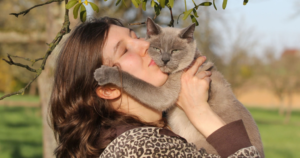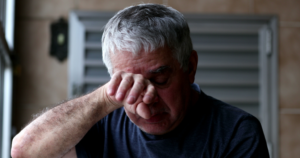There’s a connection between our past and our present behaviors.
Often, the experiences we had as children shape our approach to relationships as adults.
Some people unconsciously avoid getting too close to others. They may not even realize they’re doing it, but it often traces back to certain childhood experiences.
In this article, we’re going to dig into seven common experiences from childhood that can lead to this distancing behavior in adulthood.
While we can’t change the past, understanding it can help us navigate our relationships more effectively today. We’ll explore these experiences not to dwell on them, but to better understand ourselves and others around us.
Let’s dive in and uncover these childhood experiences.
1) Chaotic family environment
A tumultuous or unpredictable home environment can have a lasting impact.
As children, we crave stability. It’s how we make sense of the world around us. But not everyone is lucky enough to grow up in a stable, predictable home.
When a child’s home life is chaotic – whether due to parental conflict, frequent moves, or other forms of instability – they often carry that chaos into their adult relationships.
They might unconsciously avoid getting too close to others as a way to maintain control and avoid potential turmoil.
It’s a protective mechanism, born out of the need to navigate through the unpredictability they experienced in their early life.
Understanding this can help us empathize with those who seem distant or guarded. It’s not about blaming the past, but understanding its influence and finding ways to create healthier patterns moving forward.
2) Absent or distant caregivers
Our parents or caregivers are our first models for relationships.
I remember growing up with a father who was often emotionally unavailable. He loved us, there’s no doubt about that, but he was not one to show his emotions or express affection openly.
As children, when caregivers are absent or distant, it’s hard to learn how to form close, emotional bonds with others.
In my case, it took me a while to realize how much my dad’s emotional distance affected my own relationships. I found myself avoiding too much emotional intimacy, mirroring the relationship I had with my dad.
Recognizing this was the first step to breaking the cycle. I had to learn that emotional intimacy wasn’t something to fear but something to embrace.
The past influences us, but it doesn’t have to define us. We can choose differently, once we understand the why behind our behaviors.
3) Early experiences of rejection
Experiencing rejection at an early age can significantly shape our approach to relationships later in life.
When a child feels rejected – by their peers, parents, or other influential figures in their life – they can internalize that feeling of not being ‘good enough’.
In turn, this can lead them to avoid close relationships in adulthood as a means of protecting themselves from further rejection.
Interestingly, a study found that the pain of rejection is not only emotional but can also be felt physically.
This gives us an insight into how deeply early experiences of rejection can impact us and why they might lead someone to unconsciously avoid getting close to others.
4) Lack of positive role models
The relationships we observe in our formative years play a significant role in shaping our own.
When children grow up without positive relationship role models, they may struggle to form healthy, close relationships in adulthood.
If they’ve only seen dysfunctional relationships, or if their caregivers were not able to model healthy emotional expression and connection, they may find themselves unconsciously avoiding closeness in their adult relationships.
They might not know what a healthy relationship looks like, or they may fear that getting close to someone will inevitably lead to pain or conflict.
Understanding this can be a key step towards breaking these patterns and building healthier relationships.
5) Experiencing trauma
Traumatic experiences in childhood can have a profound impact on how we approach relationships as adults.
I know this firsthand. A traumatic event in my early life led me to build walls around myself as a form of protection. It felt safer to keep people at a distance, rather than risk being hurt again.
This is a common response to trauma. We may unconsciously avoid getting too close to others because we’re subconsciously trying to protect ourselves from potential harm.
Coming to terms with this, and working through the trauma, was a significant part of my own journey towards forming healthier relationships. It’s not an easy path, but it’s certainly a worthwhile one.
6) Inconsistent parental behavior
Having parents or caregivers whose behavior is inconsistent can cause confusion and insecurity in a child.
One moment, the parent might be loving and attentive, and the next, they could be distant or even hostile. This unpredictability can make a child feel unsafe and anxious about forming close relationships.
As adults, they might unconsciously avoid getting too close to others as a way to protect themselves from the unpredictability they experienced in their early relationships.
Recognizing this pattern can be the first step towards understanding our own behavior and working towards more secure and healthy relationships.
7) Lack of self-esteem
One of the most significant childhood experiences that can make us avoid close relationships as adults is a lack of self-esteem.
When you grow up feeling that you’re not worthy, not good enough, or not deserving of love, you might find yourself pushing people away in adulthood.
It’s a defense mechanism – if you don’t let people get close, they can’t hurt you.
The most important thing to remember here is that self-worth comes from within. No amount of external validation can truly make up for it.
The journey to building healthier relationships often starts with learning to value and love ourselves.
Final thoughts: The power of understanding
Unraveling the complexities of human behavior is a journey that takes us down many paths. One of the most enlightening routes is understanding how our past influences our present.
As we’ve explored, people who unconsciously avoid getting too close to others often share similar childhood experiences. These experiences, while impactful, don’t have to dictate our future relationships.
Understanding these seven childhood experiences can help make the unconscious conscious, giving us the power to change and grow.
Whether it’s learning to navigate past chaos, overcoming early experiences of rejection, or building self-esteem after years of feeling unworthy, the first step is always awareness.
This isn’t about blaming the past or dwelling on what’s been. It’s about illuminating what’s shaped us, so we can reshape ourselves.
We invite you to reflect on these insights, not with judgment but with compassion. For in understanding our past, we build a bridge to a healthier, more connected future.
















